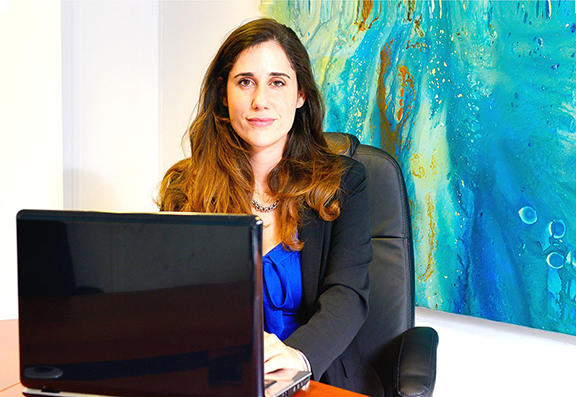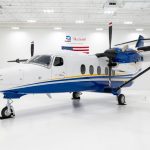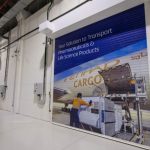Coyne Airways Carving a niche and thriving
“We have managed to claw out a small niche for ourselves by keeping to a very basic core tenet: “It is better to own a market than a mill”. What this means for us is that we do not own aircraft…What we concentrate on is the market: keeping in step with our clients, being flexible and proactive to meet their needs.”
Coyne Airways has always dared to be different—living a bold legacy rich with business and life lessons.
It has no plane but is a trusted cargo airline. It specializes in difficult to serve destinations like Iraq, Afghanistan, Somalia and South Sudan. It has been touching lives in times of peace and war that perhaps no other carrier can claim to.
“I could not have known when I set up Coyne Airways from a spare room at home,” recalled Mr. Larry Coyne, founder of Coyne Airways, when he accepted his Air Cargo News Lifetime Achievement Award in 2015, “that we would grow to be in the top 100 cargo carriers serving thousands of customers around the globe.”
“Not bad for an airline that does not actually own any aircraft.”
Mr. Coyne, who was the president of The International Air Cargo Association (TIACA) from 2001 to 2003, is held in high esteem for his unorthodox approach at things, his relentless efforts to liberalize the air cargo industry for the common good of all stakeholders and his passion to share his blessings with the less fortunate.
Growing with time
After the collapse of the Soviet Union, Mr. Coyne, who holds an MBA from the University of Pennsylvania’s Wharton School, established a charter air cargo service into the Caucuses, Central Asia and Sakhalin Island in 1994 and later transformed this into a scheduled service.
His daughter, Ms. Liana Coyne, director at Coyne Airways who is currently based at the all-cargo airline’s Dubai hub in the UAE, takes pride in knowing that the routes have grown with them over the years.
“We started operating into Central Asia soon after the Soviet Union collapsed, first as a charter operator and then later as a scheduled provider. Over the years, we have seen some countries embrace changes and international trade, whereas others seem to still be dreaming of simpler times under Communism,” Ms. Coyne told Air Cargo Update in an email interview.
“That said, I think that there has been progress all round, albeit at different paces. I take a certain pride in noting that Georgia ranked 24th last year in the World Bank’s ratings of 189 easiest countries to do business with; Armenia was pretty close behind it at number 35 and Kazakhstan came in at number 41. These countries want to do business and are actively trying to break down the barriers to comm-ercial growth,” she added.
Carving out a niche
While widely known for pioneering air cargo services in the Caucuses, Coyne Airways has also managed to build a name as the carrier that serves difficult areas like Afghanistan and Iraq.
In one of his interviews, Mr. Coyne says “the big boys”—referring to major airlines—refused to serve difficult destinations and he found the need to provide for these markets at fair prices by cutting out unnecessary costs.
And so in 2004, a decade after the company began, Coyne Airways launched freighter operations into Iraq.
At that time, Iraq was marred with sectarian violence between Shia and Sunni militias, in the aftermath of the US-led invasion in 2003. Air cargo played a very important role for people’s survival and in reconst-ruction.
By 2006, Coyne Airways initiated scheduled services to three destinations in war-torn Afghan-istan—Kandahar, Bagram and Kabul.
“We have managed to claw out a small niche for ourselves by keeping to a very basic core tenet: “It is better to own a market than a mill”. What this means for us is that we do not own aircraft; instead, we form strategic alliances with selected operators with that expertise,” explained Ms. Coyne, who holds a degree in Politics, Philosophy, and Economics from Oxford University, and is an English-qualified solicitor.
She said their focus is on the market and the ability to provide clients with their needs, even under exceptional circumstances.
“What we concentrate on is the market: keeping in step with our clients, being flexible and proactive to meet their needs. We have our own AWB and an extensive interline network, meaning that our customers can tender cargo from pretty much any global gateway, and then track it all the way to final destination on our website, on our app, or by talking to one of our representatives,” she explained.
“We do all we can to make it easy to do business with us, and we try to communicate the way and at the frequency that our customers want,” she added.
No planes, no issue
While the majority of cargo airlines have their own fleet of aircraft, the lack of any hasn’t affected Coyne Airways’ operations.
“In the beginning, this was necessary in order to serve some staunchly protectionist destinations which penalized other flag carriers, but in an era of oversupply, a necessity has become a virtue,” said Ms. Coyne.
For some business analysts, this business practice is more cost-effective because there are no extra costs associated with maintenance and the upkeep of the aircraft.
For Ms. Coyne, it ultimately boils down to the service and the pricing.
“Some people have queried whether we can offer the same service levels as an airline which owns it own aircraft. I think we can do better: asset-owners love cargo as much as we do, but only cargo which can fit into their frame,” she said.
“We are effectively metal neutral – we will find the frame that fits! Also, from the customer’s perspective, I think it makes very little difference as to whether we own, lease or rent the asset – the same way that most people don’t really care about their taxi driver’s ownership arrangements, provided that the service is good and the price is competitive,” she added.
In 2006, Coyne Airways started its first B747-400F operation into the Caspian.
All Gulf destinations are now served directly from Dubai with seamless connections from North America, Europe and Asia via the company’s large network of interline partners.
Challenging Routes
Cargo delivery to both Afghanistan and Iraq can be very challenging in times of war or even in post-war era.
“Operations in Iraq and Afghanistan can be challenging but our experience stands us in good stead to deal with most contingencies that arise. In fact, sometimes the most challenging thing can be reminding customers that, even though 99% of the time things go smoothly, we are operating into conflict- or post-conflict zones and sometimes matters can be out of our control,” she said.
On one occasion, Ms. Coyne recalled one of their flights bound for a military base in Kandahar had its permit cancelled at the very last minute due to an unannounced presidential visit.
“In the lead-up, there had been no changes to the way flight permissions were granted – perhaps they didn’t know themselves or they did not want to tip off anyone about the visit. Either way, we had some very upset clients to placate. Thankfully, we could point them to the news and explain our situation. We were also able to get permissions quickly soon after,” she said.
Apart from unexpected circum-stances, serving these routes is also challenged with the volatility in volumes.
“I think that one of the biggest challenges for air cargo to both Iraq and Afghanistan is the volatility in volumes – it can be either feast or famine.We are well-placed to deal with those because we can normally adjust capacity to meet demand by adding additional rotations or making arrangements with other carriers,” said Ms. Coyne.
The cargo airline delivers goods vital to the countries’ economy like machinery, equipment, pharmaceuticals and other general cargo items.
“Thankfully, many Iraqis and Afghans are not forced to rely on expensive airlifted food for survival, but it is rewarding to hopefully be a part of their economic development,” said Ms. Coyne.
Prior to the conflict in Yemen, Coyne was serving several cities although these services were interrupted when the civil war escalated.
Every now and then, Coyne continues to provide airlift for some vital medical and aid supplies. In Syria, the airline is also tapped by aid agencies to bring relief goods to people.
“We try to help where we can and find solutions for where our customers ask us to go,” said Ms. Coyne.
BOX
“We are effectively metal neutral – we will find the frame that fits! Also, from the customer’s perspective, I think it makes very little difference as to whether we own, lease or rent the asset – the same way that most people don’t really care about their taxi driver’s ownership arrangements, provided that the service is good and the price is competitive.”
Ms. Liana Coyne
Director, Coyne Airways
Air cargo and aviation remain predominantly male-dominated but some women who have broken the glass ceiling are chang-ing the dynamics in the industry. Liana Coyne, daughter of Coyne Airways’ founder, is one of them. This Oxford graduate who went on to become an English-qualified solicitor who co-authored a number of articles on legal subjects while working for the law firm Baker and McKenzie in London and Hong Kong, speaks six languages and hopes to converse in Arabic one day. Here are more of her insights shared with Air Cargo Update.
How many planes and pilots do you have? Is it a must for those flying to conflict zones to have some military background as contingency for any eventualities?
We do not have our own fleet, but we do ensure that the operators we use are well-experienced and well-qualified.
Africa seems to fairly use air cargo to increase trade globally, any future expansion plans in the region?
We are currently serving more than 30 destinations all over Africa. We do not have any immediate plans for expansion but we are looking to deepen our current services.
What about the Middle East, can you share with us your projections and plans for this region?
Again, we are currently serving Iraq and Afghanistan here in the Middle East. Our plan now is to focus on what we do best with our current services, but as always, we will go with our customers.
As the woman steering the wheel for Coyne Airways, what business philosophy do you adhere to in running your company and managing your people?
I think that the most important thing in business is respect towards our customers, our suppliers, our colleagues and ourselves. It helps guide us on what we should and shouldn’t do, and what we will or will not do.
We understand that you’re also into some charitable projects. Can you tell us the latest about this?
We try to do our part. Our latest initiative aims to bring together a consensus within the air cargo industry on behalf of a charity; this initiative is being spearheaded by my father, as a former president of TIACA with some of his colleagues in the Chairman’s Council such as Chris Leach from ACS and other luminaries.
The charity is a small one with a big impact, providing life-changing support to the most vulnerable children whose families, communities and schools have been torn apart by war. We have pledged $1 for each AWB we move and we will invite our customers and competitors to match our contributions.
How important is it to share with the underprivileged the fruits of your hard work?
We believe it is important to always give back to those less fortunate than ourselves. What you realize from working in conflict and post-conflict zones is that lives can change in a heartbeat; today we are able to help, tomorrow we might need that same help.
What would you say is Coyne Airways’ proudest moment and why?
It’s hard to choose! We try to do something to be proud of every day. However, on a personal level, I was very touched when my father was recognized for a Lifetime Achievement Award last year.














